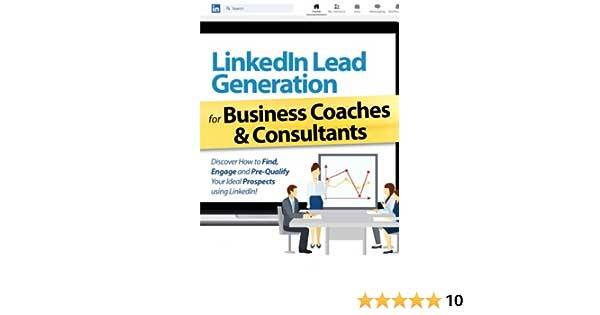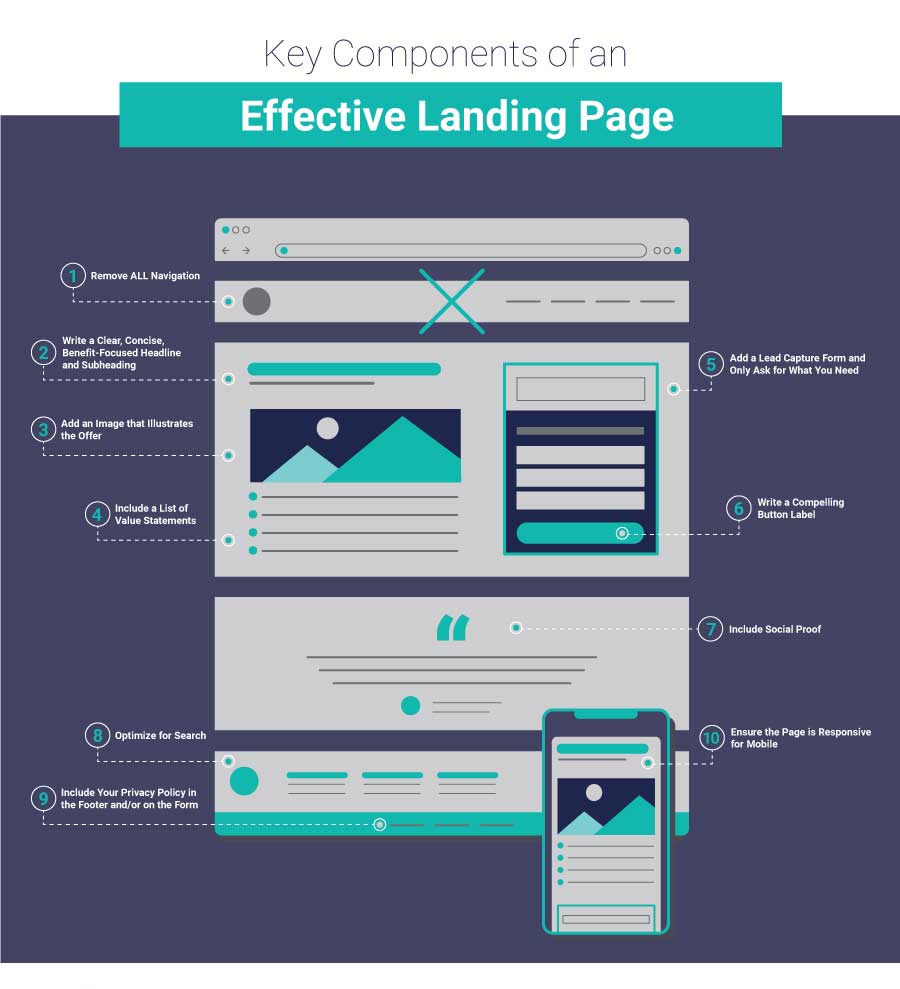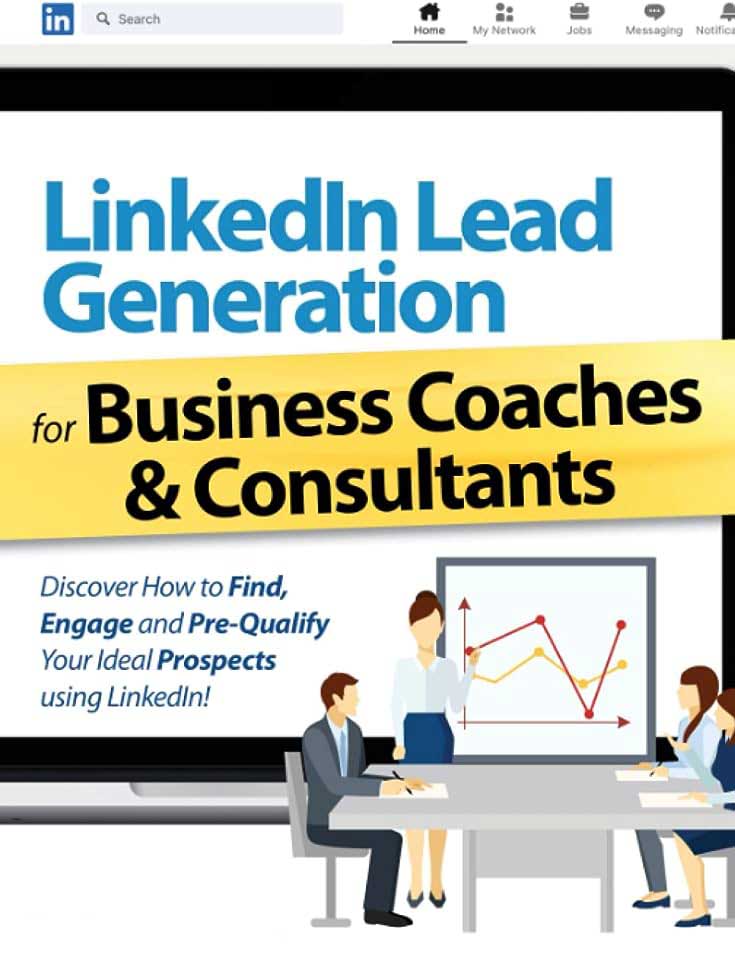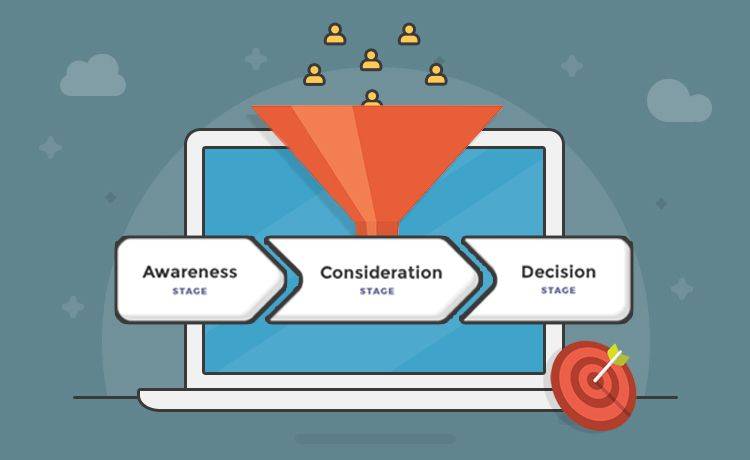
Source: m.media-amazon.com
Introduction to Lead Generation for Business Coaches
Importance of lead generation for business coaches
Effective lead generation is crucial for business coaches to attract and convert potential clients. By generating high-quality leads, coaches can build a strong client base and increase their revenue. Lead generation allows coaches to connect with individuals actively seeking their services, ensuring their marketing efforts are targeted and impactful.
Benefits of effective lead generation strategies
Implementing effective lead-generation strategies can provide several benefits for business coaches:
1. Increased visibility: Lead generation helps coaches establish a strong online presence, making it easier for potential clients to find and engage with them.
2. Targeted marketing: By attracting leads who are specifically interested in coaching services, coaches can tailor their marketing messages to resonate with their target audience.
3. Higher conversion rates: Effective lead generation techniques can help coaches attract qualified leads who are more likely to convert into paying clients.
4. Improved efficiency: With a steady stream of high-quality leads, coaches can focus their time and resources on nurturing and converting leads, rather than chasing after uninterested prospects.
5. Business growth: By consistently generating a reliable stream of leads, coaches can expand their client base, increase their revenue, and achieve long-term business growth.
To achieve successful lead generation, coaches should employ a variety of strategies, including creating compelling content, utilizing social media platforms, optimizing their website for lead capture, and engaging in networking and referral programs. By implementing these techniques, coaches can unleash their potential and achieve greater success in their coaching businesses.
Identifying Your Target Audience
Defining your ideal client persona
To effectively generate leads as a business coach, it is crucial to identify and define your ideal client persona. This fictional representation of your target audience helps you understand their needs, preferences, and pain points. When creating your ideal client persona, consider the following:
- Demographics: Age, gender, location, occupation, and industry
- Goals and Challenges: What are their professional goals? What challenges do they face in achieving those goals?
- Interests and Preferences: What topics are they interested in? How do they prefer to receive information (e.g., through blogs, podcasts, or social media)?
- Decision-making factors: What factors influence their decision to hire a business coach? What are their objections or concerns?
Conducting market research to understand your target audience
Market research plays a crucial role in understanding your target audience and creating an effective lead-generation strategy. Here are some steps to conduct market research:
- Surveys and interviews: Gather feedback directly from your existing clients or target audience through surveys and interviews. These can provide valuable insights into their needs, preferences, and pain points.
- Competitor analysis: Analyze your competitors’ target audience and strategies. Identify what sets you apart and how you can position yourself as a unique solution.
- Online research: Use online resources, forums, and social media platforms to gather information about your target audience’s needs and interests.
- Data analysis: Analyze data from your website, social media platforms, and email marketing campaigns to gain insights into user behavior and preferences.
By understanding your target audience through detailed research, you can tailor your marketing efforts to reach the right people and generate quality leads for your business coaching services.
 Source: toriemathis.com
Source: toriemathis.com
Creating an Irresistible Lead Magnet
What is a lead magnet, and why is it important?
A lead magnet is a valuable resource or incentive that you offer to potential clients in exchange for their contact information, such as their email address. It is an essential tool for effective lead generation as it helps attract and capture leads, allowing you to nurture and convert them into paying clients. You demonstrate your expertise and value by providing a lead magnet while building trust and rapport with your target audience.
Types of lead magnets for business coaches
As a business coach, there are various types of lead magnets that you can create to attract your ideal clients:
1. E-books or Guides: Offer a comprehensive and valuable resource addressing a specific pain point or challenge your target audience may face.
2. Webinars or Workshops: Provide live or recorded training sessions on specific topics related to business coaching, offering valuable insights and actionable strategies.
3. Checklists or Templates: Offer a ready-to-use tool that simplifies your audience’s common task or process, saving them time and effort.
4. Case Studies or Success Stories: Share real-life examples and stories of how your coaching has helped clients achieve their goals and overcome challenges.
Designing and optimizing your lead magnet
When designing your lead magnet, it’s important to keep the following best practices in mind:
1. Clear and Compelling Title: Use a title that clearly communicates the value and benefit your lead magnet offers to your audience.
2. High-Quality Content: Ensure that your lead magnet is well-researched, well-written, and provides valuable information or solutions to your audience.
3. Professional Design: Invest in professional design to make your lead magnet visually appealing and easy to read.
4. Call-to-Action: Include a clear call-to-action within your lead magnet that directs potential clients to take the next step, such as scheduling a consultation or signing up for a webinar.
5. Optimize for Lead Capture: Integrate a lead capture form within your lead magnet to collect the necessary contact information from your audience.
By creating an irresistible lead magnet that provides value and addresses your target audience’s needs, you can effectively attract and capture leads, ultimately growing your business coaching practice.
Remember, your lead magnet’s success relies on continuously testing and optimizing its performance to ensure maximum results and conversions.
 Source: www.gate39media.com
Source: www.gate39media.com
Building an Opt-In Landing Page
A well-designed landing page is crucial for effective lead generation as a business coach. It serves as a gateway for potential clients to provide their contact information in exchange for valuable content or services. Here are some key elements to include on your landing page:
Elements of a high-converting landing page
1. Clear and compelling headline: Grab the attention of your visitors with a headline that clearly communicates the benefit or value they will receive by opting in.
2. Engaging copy: Use persuasive copy that highlights the unique selling points of your coaching services and addresses your target audience’s pain points and aspirations.
3. Lead capture form: Include a simple and user-friendly form for visitors to fill out their contact information. Keep it short and ask for only the essential details you need.
4. Call-to-action (CTA): Place a prominent and compelling CTA button that clearly instructs visitors to take the desired action, such as “Sign up now” or “Download your free guide.”
5. Social proof: Boost your credibility by including testimonials, success stories, or logos of companies you have worked with. This helps build trust and confidence in your coaching services.
6. Visual appeal: Use high-quality images or videos that are relevant to your coaching niche and visually appealing. Visual elements can enhance the user experience and captivate your audience.
Optimizing your landing page for lead generation
1. Mobile optimization: Ensure that your landing page is fully responsive and optimized for mobile devices. With more people accessing the internet through smartphones and tablets, you don’t want to miss out on potential leads because of a poor mobile experience.
2. A/B testing: Experiment with different variations of your landing page elements, such as headlines, copy, and CTA buttons. Test which versions perform better in terms of conversion rates and make data-driven decisions to improve your lead generation efforts.
3. Strategic placement of lead capture form: Position your lead capture form prominently and above the fold so that it is easily visible without the need for scrolling. Minimize distractions and keep the focus on the form and CTA.
4. Value-driven content offer: Create a compelling offer, such as a free e-book, checklist, or webinar, that provides valuable insights or solutions for your target audience. Make it clear what they will gain by opting in and showcase the benefits.
5. Strong privacy statement: Address any concerns about privacy and assure your visitors that their information will be protected. Display a privacy statement or link to your privacy policy to build trust and credibility.
By implementing these elements and optimizing your landing page, you can effectively generate leads and grow your coaching business.
 Source: m.media-amazon.com
Source: m.media-amazon.com
V. Implementing Email Marketing Campaigns
Crafting engaging email sequences
When it comes to lead generation for business coaches, implementing effective email marketing campaigns can make a significant impact. Here are some key strategies:
- Personalization: Tailor your emails to your target audience’s specific needs and interests. Use personalization tags to address recipients by name and include relevant content that resonates with their goals and challenges.
- Compelling Subject Lines: Grab your audience’s attention with attention-grabbing subject lines that entice them to open your emails. Experiment with different strategies such as curiosity, urgency, or offering valuable information.
- Value-Driven Content: In your emails, provide valuable insights, tips, and actionable advice. Showcase your expertise and position yourself as a trusted authority in your niche. Offer exclusive content or access to resources that your audience can benefit from.
Segmenting your email list for targeted campaigns
Segmenting your email list allows you to create highly targeted campaigns that resonate with specific segments of your audience. Here are some key segmentation strategies:
- Demographics: Segment your list based on demographics such as age, gender, location, or industry. This allows you to customize your messaging and offers better to match each segment’s unique characteristics and needs.
- Engagement Level: Segment your list based on the engagement level of your subscribers. Identify those who have shown higher interest, such as opening emails, clicking on links, or downloading resources. Tailor your campaigns to nurture these engaged leads further.
- Customer Journey Stage: Segment your list based on where leads are in their customer journey. Create campaigns specifically designed to move leads from one stage to the next, whether it’s awareness, consideration, or decision-making.
Measuring and analyzing email campaign performance
To ensure the success of your email marketing campaigns, it’s crucial to measure and analyze their performance consistently. Here are some key metrics to track:
- Open Rate: This metric measures the percentage of recipients who opened your emails. A higher open rate indicates that your subject lines and sender name are effective.
- Click-Through Rate (CTR): CTR measures the percentage of recipients who clicked on a link within your email. It indicates the level of engagement and interest in your content.
- Conversion Rate: The conversion rate tracks the percentage of subscribers who took the desired action, such as signing up for a webinar, downloading a free resource, or scheduling a discovery call. It is a measure of the effectiveness of your call-to-action and overall campaign.
- Bounce Rate: The bounce rate measures the percentage of emails that were not delivered to recipients’ inboxes. It helps identify potential issues with email addresses or deliverability.
By continuously analyzing these metrics, you can identify areas for improvement, optimize your campaigns, and achieve higher conversion rates and better results for your lead generation efforts.
Harnessing the Power of Social Media
Choosing the right social media platforms for lead generation
When it comes to effective lead generation for business coaches, harnessing the power of social media is crucial. Here are some tips on how to make the most of this powerful tool:
- Identify your target audience: Before choosing which social media platforms to focus on, it’s essential to understand your target audience. Research their demographics, interests, and online behavior to determine the platforms they are most likely to be active on. This will ensure you are targeting the right audience for lead generation.
- Consider platform strengths: Different social media platforms have different strengths and features. For example, LinkedIn is great for professional networking and reaching corporate clients, while Instagram is more visual and can be effective for showcasing success stories. Choose platforms that align with your coaching niche and where your target audience is most likely to engage.
- Leverage existing networks: Take advantage of the networks you already have on social media platforms. Connect with colleagues, clients, and industry leaders to expand your reach and increase the chances of generating leads through referrals and recommendations.
Engaging with your target audience on social media
Once you have decided on the right platforms, engaging with your target audience effectively to generate leads is essential. Here’s how you can do it:
- Share valuable content: Regularly post relevant, informative, and valuable content to your target audience. This positions you as an authority in your coaching niche and attracts potential clients who are seeking solutions to their business challenges.
- Encourage interaction: Encourage your audience to engage with your content by asking questions, conducting surveys, or hosting live Q&A sessions. This helps you understand their needs better and increases the likelihood of them reaching out to you for coaching services.
- Build relationships: Take the time to respond to comments and messages from your audience. Building relationships and fostering a sense of community on social media can lead to increased trust and conversions. Show genuine interest in your audience’s challenges and provide personalized recommendations whenever possible.
Using paid ads for lead generation
Paid ads on social media platforms can be a powerful tool for lead generation. Here are some tips for getting the most out of your ad campaigns:
- Define your target audience: Use the targeting options available on social media platforms to define your audience based on demographics, interests, and behaviors. This ensures that your ads are being shown to the right people who are more likely to be interested in your coaching services.
- Create compelling ad copy and visuals: Craft attention-grabbing ad copy and visuals that clearly communicate the benefits of your coaching services. Use compelling language, testimonials, and success stories to capture the attention of your target audience and entice them to click on your ads.
- Test and optimize: Continuously test and optimize your ad campaigns to improve their effectiveness. Monitor your ads’ performance, adjust targeting and messaging, and use A/B testing to determine which variations resonate best with your audience.
By harnessing the power of social media and implementing these strategies effectively, business coaches can generate high-quality leads and build a successful coaching practice.

Source: i0.wp.com
Tracking and Analyzing Lead Generation Performance
Setting key metrics and goals
Tracking and analyzing lead generation performance is crucial for successful business coaches. By setting key metrics and goals, coaches can measure the effectiveness of their lead-generation efforts and make data-driven decisions to optimize their strategies. Here are some key metrics and goals to consider:
- Conversion Rate: Measure the percentage of leads that convert into paying clients. This metric helps coaches understand the effectiveness of their lead nurturing and sales processes.
- Cost per Lead: Calculate the average cost of acquiring a new lead. This metric helps coaches assess the efficiency of their lead-generation campaigns and allocate budgets accordingly.
- Return on Investment (ROI): Evaluate the financial returns generated from lead generation efforts. Coaches can calculate the ROI by comparing the revenue generated from converted leads to the cost of lead generation.
- Qualified Leads: Identify the number of leads that meet specific criteria, such as budget, needs, and readiness to purchase. This metric helps coaches focus on high-quality leads and improve their targeting strategies.
Utilizing analytics tools to track and measure performance
Business coaches should utilize analytics tools to track and measure lead generation performance effectively. These tools provide valuable insights and data that can inform decision-making. Here are some popular analytics tools for lead generation:
- Google Analytics: This free tool provides a comprehensive overview of website traffic, lead sources, and conversion rates. Coaches can use it to track the performance of their website and landing pages.
- CRM Software: Customer Relationship Management (CRM) software allows coaches to track and manage leads throughout the sales pipeline. It provides valuable data on lead behavior, interactions, and conversion rates.
- Email Marketing Platforms: Email marketing platforms, such as Mailchimp or HubSpot, offer analytics features to track email open rates, click-through rates, and lead engagement. Coaches can use this data to optimize their email campaigns.
- Social Media Analytics: Social media platforms, such as Facebook and LinkedIn, provide analytics tools to track engagement, reach, and conversion rates. Coaches can use these insights to evaluate the effectiveness of their social media lead generation campaigns.
By utilizing these analytics tools and tracking key metrics, business coaches can better understand their lead generation performance. This data-driven approach enables them to make informed decisions and optimize their strategies for effective lead generation.

Source: d24oheizjk2k1o.cloudfront.net
Nurturing and Converting Leads
Effective lead nurturing strategies
To maximize your lead generation efforts as a business coach, it’s essential to implement effective lead nurturing strategies. Here are a few techniques to consider:
- Personalized Communication: Tailor your communication to each lead’s specific needs and interests. Customize your messages and provide valuable content that addresses their pain points and challenges.
- Email Marketing: Utilize email marketing campaigns to nurture leads over time. Send regular newsletters, educational content, and success stories to keep your leads engaged and build trust.
- Webinars and Workshops: Offer webinars and workshops that provide valuable insights and solutions to your target audience’s problems. Use these opportunities to engage with leads and position yourself as an expert in your field.
- Customer Testimonials: Share success stories and testimonials from your satisfied clients. Social proof can significantly influence leads’ decision-making process and increase their trust in your services.
- Follow-Up: Consistent follow-up is crucial in lead nurturing. Whether it’s through phone calls, personalized emails, or social media interactions, staying in touch with leads and showing genuine interest in their success can help convert them into paying clients.
Converting leads into paying clients
Converting leads into paying clients requires a strategic approach and a clear understanding of your target audience’s needs. Here are some tips to help you convert leads:
- Build Rapport: Establish a genuine connection with your leads by listening actively and empathizing with their challenges. Building trust and rapport is essential for nurturing long-term business relationships.
- Offer Value: Demonstrate the value of your coaching services by providing free consultations or trial sessions. Let potential clients experience firsthand how your expertise can benefit them and help them achieve their goals.
- Clearly Define Benefits: Communicate the specific benefits and outcomes that clients can expect from working with you. Highlight the transformation and tangible results that your coaching can deliver.
- Provide Flexible Packages: Offer a range of coaching packages tailored to different budget levels and needs. Providing flexible options increases the chances of converting leads who have different financial constraints.
- Showcase Expertise: Share your knowledge and expertise through blogs, eBooks, or speaking engagements to establish yourself as an authority in your niche. Positioning yourself as an expert can significantly influence leads’ decision to choose your services.
Remember, effective lead nurturing and conversion require patience and persistence. By implementing these strategies and consistently demonstrating the value of your coaching services, you can turn leads into paying clients and build a successful business coaching practice.
Conclusion
Recap of effective lead generation strategies for business coaches
In conclusion, effective lead generation is crucial for the success of business coaches. Here is a recap of the strategies discussed in this article:
- Identify your target audience: Understand your ideal clients and tailor your lead generation efforts to reach them specifically.
- Create valuable content: Produce high-quality content that provides value to your target audience, such as blog posts, articles, videos, or podcasts.
- Optimize your website: Ensure that your website is properly optimized for search engines, making it easier for potential clients to find you online.
- Utilize social media: Leverage social media platforms to build a strong online presence, engage with your audience, and generate leads.
- Offer free resources: Provide free resources, such as e-books, guides, or webinars, to capture leads and demonstrate your expertise.
- Network and collaborate: Attend industry events, join professional organizations, and collaborate with other professionals to expand your network and gain new leads.
- Ask for referrals: Be bold and ask satisfied clients for referrals. Word-of-mouth recommendations can be powerful lead generation tools.
By implementing these strategies consistently and adapting them to your specific business coaching niche, you can generate a steady stream of high-quality leads and grow your coaching practice.
Lead generation is an ongoing process, so regularly review and tweak your strategies to ensure continued success. Good luck on your journey as a business coach!



